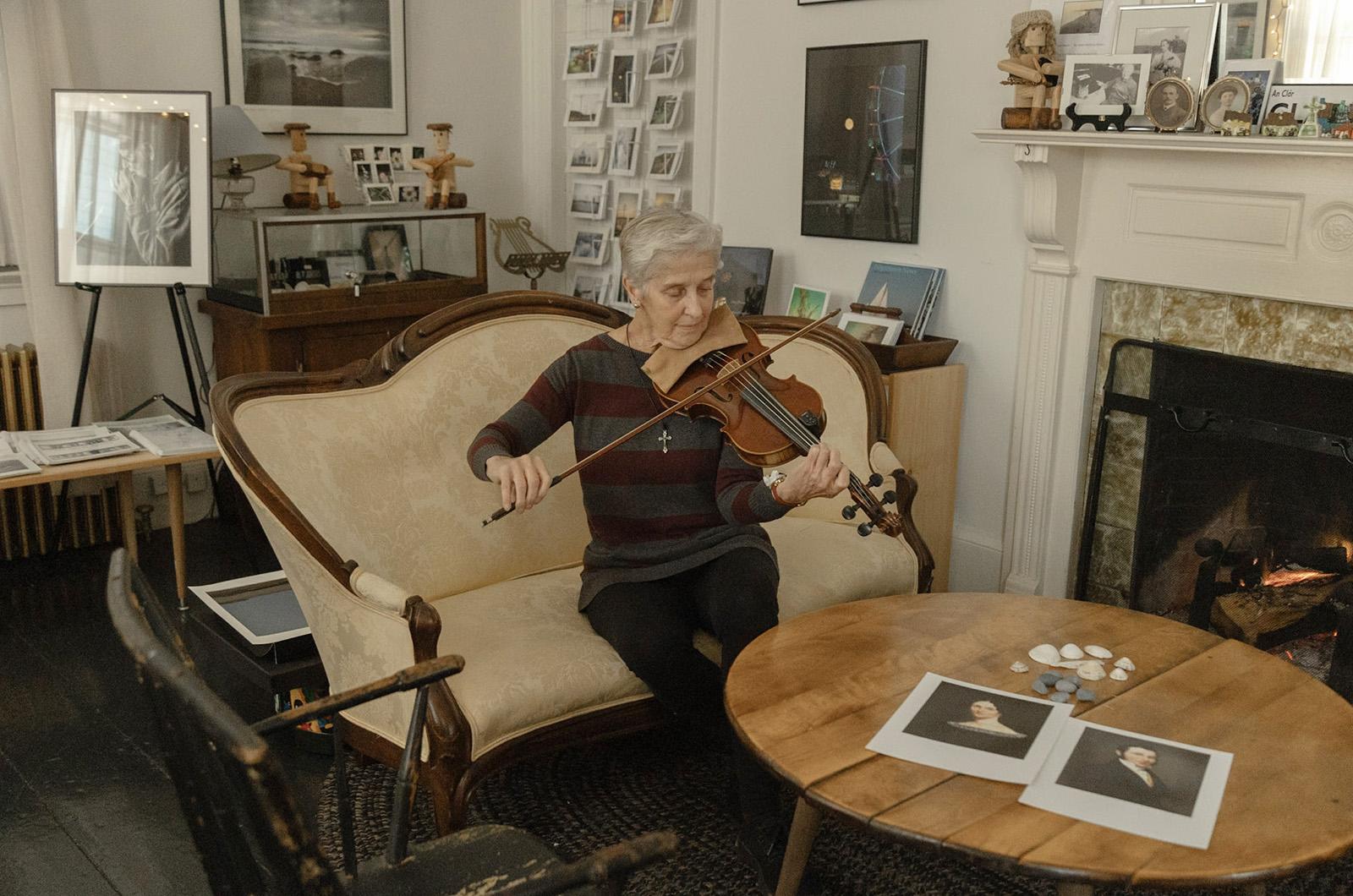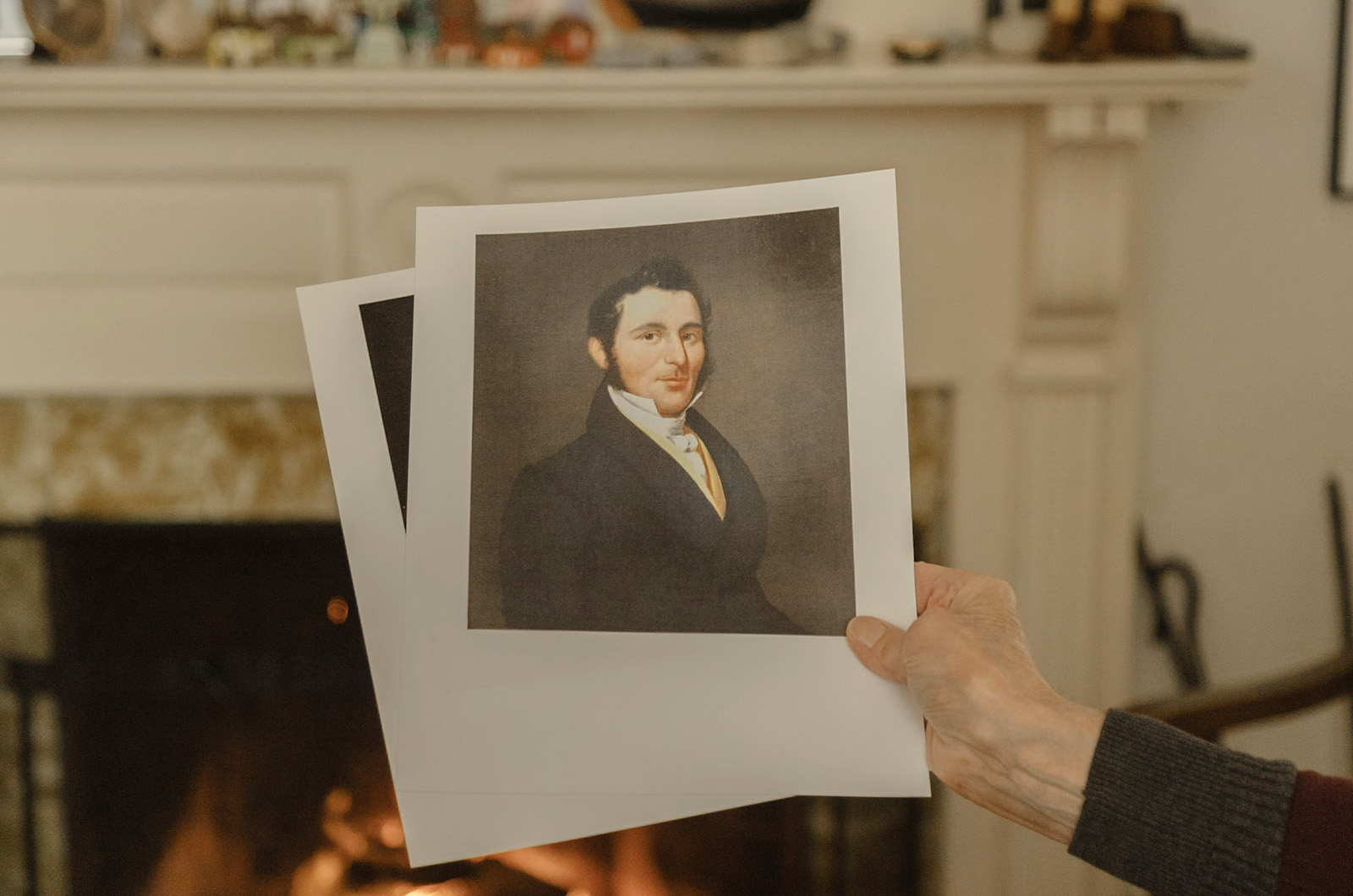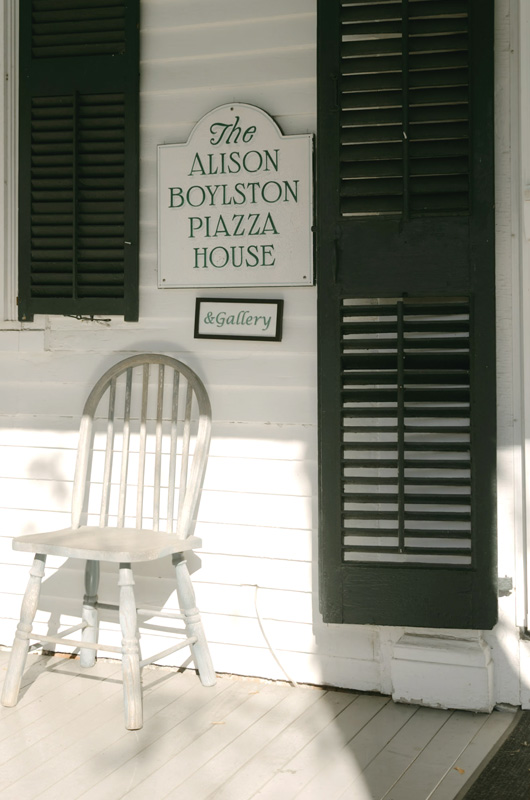The Alison Boylston Piazza house has sat in its location on Upper Main street in Edgartown for 175 years, but it did not begin its life downtown.
Built in the early 1800s by whaling captain Alexander Weeks, the home was located on the outskirts of town until the late 1840s, when the home was picked up and tranfered down to mainstreet, a journey which resulted in an impromptu party at its completion.
The moment was recalled in a Vineyard Gazette article written in 1948 this way: “A fiddler was procured, fair ladies recruited, and the evening passed all too swiftly,”
Nearly two centuries later, the house continues its fiddling legacy with its current owner, Sara Piazza, recounting this history through song. It is also a song of herself, having grown up in the Captain Week’s house, and which she currently runs as a bed and breakfast since moving back to the Island full-time in 2012.
Ms. Piazza’s new composition is part of her effort to continue the home’s musical legacy, to keep alive the community-building power of music on the Island.
“I grew up in this house with music around the kitchen table,” Ms. Piazza said, in an interview with the Gazette following a fiddling session. “Everybody would come around, the neighbors, the relatives and cousins, would come in and would sing.”
As for the song of the house, it begins in the 1840s, Ms Piazza said. The house originated in Ocean Heights, she said, with “the captain going to a house on a hill overlooking the ocean and one day deciding to live in town.”
Wavering, lonely notes emerged from Ms. Piazza’s fiddle as she begann the story of Captain Weeks, and his home far from town center.
“I tried to write it as a lament. But it didn’t come out as a lament, it’s more of a saga,” she said.
In a the Gazette’s recounting of the event in 1948, the house move was recalled: “Yielding to that irresistible urge which seemed to overtake both houses and their owners in the olden days, it was decreed that it should become a town dweller,” wrote the Gazette, and with the help of “forty yoke of oxen and a large force of men, the house made its slow and stately way over the sandy roads.”
At this point in the story, Ms. Piazza’s fiddling pace quickens, her foot taps faster and the corners of her mouth turn up to a smile, as begins to play a jaunty jig, her imagining of what the music that night might have sounded like.
“I started thinking about that cold May evening...that they were in this house with no electricity, with whale oil lamps, a lot of liquor, some fetching young ladies and a fiddle,” she said. “Somehow Captain Weeks has gotten more and more into my psyche.”
Since Ms. Piazza’s grandparents purchased the house in the 1930s, she said, the home has remained a sanctuary for Island fiddlers, with three generations of family violinists playing there. Though Ms. Piazza grew up among the music, she only came to fiddling later in life, while studying Jewish liturgical music in Boston.
“Being a student is a very lonely experience,” she recalled, but it was only lonely until she “fell in with the Irish music hooligans in the pubs.”
Unlike her solitary musical studies, Irish pub music is a fundamentally communal activity. Fiddlers, guitarists, drummers and other musicians all learn a common musical repertoire, and with it are equipped to perform anywhere Irish musicians congregate.
On a recent trip to Ireland, for example, Ms. Piazza “went over with my fiddle in one hand and my camera bag in the other,” with only loose plans of where she might perform. After just one night playing at a pub on Ireland’s west coast, she was able to put together a musical itinerary for the week.
Back at home in Edgartown, Ms. Piazza said she has hosted numerous Irish folk music sessions on the porch of old captain Weeks’s house. Even when she is fiddling alone, she said, she can feel the power that music has for bringing people together.
“Often, it’s me on the front porch by myself in the evening. And what happens is, people come by and they stop and they sit with me,” she said. “My door is always open.”
The steady stream of porchside music, Ms. Piazza said, is a fitting contribution to the house’s legacy.
“The story is that the first thing they did when they got to this location...was call the fiddler,” she said. “There’s something about this house and violins.”






Comments (1)
Comments
Comment policy »